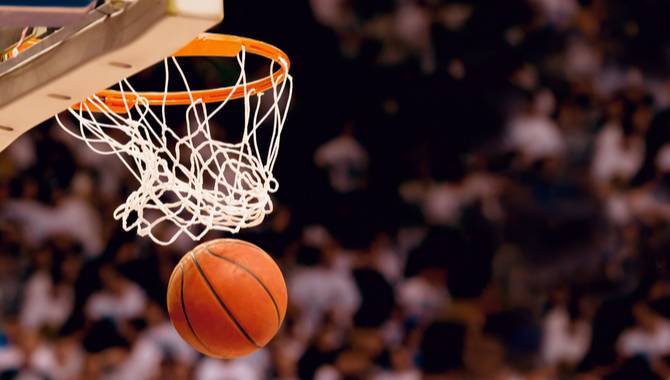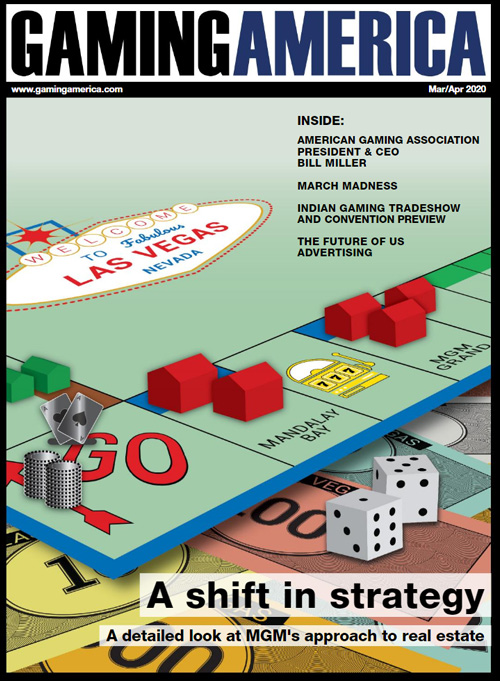
In many states, for the first time in the NCAA Tournament’s seven-decade history, tens of millions of Americans will have the opportunity to bet on games from their home state. From Montana to Michigan to New Hampshire, bettors will wager on college basketball from nearby casinos or on their own mobile devices. Last year, New Jersey in particular saw a March Madness betting rush but that opportunity has now spread to many more states.
Like the games themselves however, the tournament is expected to deliver uncertainty to sportsbook operators across the country. David Strow, VP of Corporate Communications for Boyd Gaming, tells Gaming America: “To be honest, we don’t know what quite to expect. This is the first time we’ve had sports betting in some of our states for March Madness, but certainly we’re very excited for the opportunity based on what’s happened in Nevada over the years.”
March Madness is a nationwide event but the delirium may be best-felt in Las Vegas. Millions of people flock to Sin City for the first round of the NCAA Tournament, when 48 games take place over 80 hours. The results on the court are only overshadowed by those at the ticket window. In March 2019, Nevada sportsbooks took in a total basketball handle of $495m.
In the first full year of a post-PASPA environment, that meant Nevada had steered clear of its rivals. New Jersey saw $100m placed on the NCAA Tournament last year, an impressive figure but not one to worry Las Vegas casinos. Strow explains: “You have a lot of customers who have been coming to Las Vegas for years. It’s been a tradition for them. They have a hotel they like to go to. They have a sportsbook they like to go to with their friends to watch March Madness. So you’re going to see those customers wanting to return to Las Vegas to have that long weekend.”
When PASPA was overturned, some in the sports betting industry expressed concern Las Vegas would take a hit for events like the Super Bowl and the NCAA Tournament. Those anxieties have been put to rest. David Forman, Senior Director of Research for the American Gaming Association, tells Gaming America: “It’s definitely a case of growing the pie rather than dividing it up, so I think everybody has been able to do well without cannibalizing too much state-to-state.”
Sportsbooks across the country should be in line for a strong March Madness showing. The AGA reported a 25% jump for Super Bowl wagering this year, which bodes well for March Madness. Forman says: “I would hope we’ll see something similar with March Madness, given the proliferation of legal brick-and-mortar sportsbooks since last year.”
The way NCAA Tournament handle and revenue breaks down within states with legalized sports betting is a different matter. In states with nascent sports betting markets like Pennsylvania, sportsbooks who’ve partnered with recognizable brands have performed strongest. Boyd Gaming-owned Valley Forge Casino’s FanDuel sportsbook took in $156m of January 2020 handle, accounting for 45% of Pennsylvania’s monthly haul.
Strow explains: “We are especially confident because of who our partner is. FanDuel is a very powerful brand. They currently hold very close to 50% of the Pennsylvania market. It’s kind of become the go-to sports betting brand in Pennsylvania.” Boyd Gaming and FanDuel’s partnership spans sportsbooks in Iowa, Indiana and Mississippi as well. Sportsbooks in states where college basketball is popular, or who have schools likely to compete for a national title, stand to capitalize the most.
“What makes March Madness so appealing is you have so many teams participating from all over the country,” Strow continues. “So for each of those properties it’s likely they’re going to have some local teams they can follow and root for. Indiana is like ground zero for college basketball, so obviously that will probably be pretty popular there.”
While states like Indiana and Pennsylvania already have well-established sports betting markets, others will be joining the mix just in time for the tournament. The Montana Lottery’s sports betting product was scheduled to launch for March 9, while Illinois Governor J.B. Pritzker promised legislators sports wagering would go live in time for the tournament.
Michigan was also in a race against the clock to launch sports betting in time for the Big Dance. Whether these states can successfully launch sports betting in time for March Madness carries implications for their own jurisdiction, as well as neighboring states competing for regional customers. Sportsbooks in Indiana, for example, would stand to benefit from delayed launches in neighboring Illinois or Michigan, in which case residents of those states might drive across the border to bet in Hoosier territory.
The first four days of the NCAA Tournament brings in the highest tally of wagers, which raises the stakes for sportsbooks hoping to cash in. Strow tells Gaming America: “In those four days, you will literally start at nine o’clock in the morning and they will be playing games until nine o’clock at night non-stop. That is such a unique experience, being able to watch and wager on so many games simultaneously, that that’s really when you see the heaviest betting interest.”
Betting on college basketball is what brings people to casinos, but the continuous action is what keeps them there. For casinos in states with new sports betting markets, March Madness presents an opportunity to gain clientele and lure them to attractions outside the sportsbook. Strow explains: “From Boyd Gaming’s perspective, that’s what has made sports betting such a success for us. It’s about a lot more than simply getting a new customer in the building and placing a bet on the game. They can spend money in the casino or a table game, they may go into a restaurant, they may get some drinks at the bar; but it’s an opportunity to get new customers into the building to introduce them to what we have to offer and to grow our customer base. March Madness fits perfectly into that category.”
But there remains a shady element to betting on popular events like March madness. Though legalized sports betting is more accessible than ever for many Americans, bettors continue to wager illegally, cutting down on casino and operator profits. In 2018, the AGA reported that 97% of the $10bn placed on March Madness wagers that year would take place illegally. “We did some consumer research on sports betting we released last spring, just trying to get at consumers’ knowledge of the market.” Forman says. “I was pretty surprised at the level of confusion out there on whether betting online is legal or even whether a bookie is legal or not. A surprising number of people just don’t know and I think there’s a lot of work for the industry to do to drive home who is and is not a legal operator.”
As more states legalize sports betting though, a greater number of Americans appear to be turning to legal methods. The AGA found that, of the 26 million Americans expected to wager on this year’s Super Bowl, close to four million planned to head to a brick-and mortar sportsbook and another five million were to wager on a mobile or online platform, whether legal or illegal.
Strow concludes: “Historically your two biggest events on the sports calendar are the Super Bowl and March Madness. The Super Bowl was fantastically successful across the country; and I think we’re optimistic we’re going to have a very successful March Madness Tournament.”

